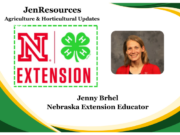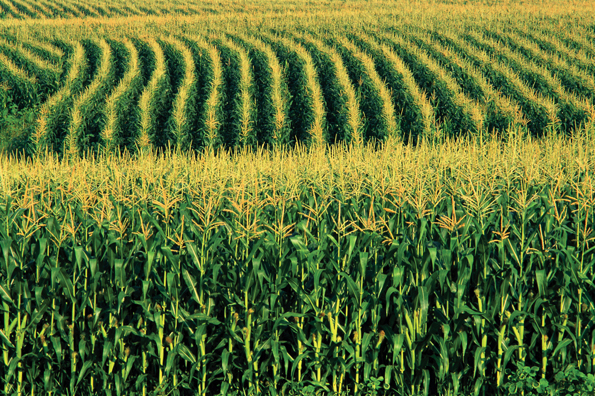Upcoming events:
Mar. 25: Crop Science Investigation (CSI) for youth, 5 p.m., Extension Office, RSVP jrees2@unl.edu
Mar. 25-28: National AgrAbility Training Workshop, Embassy Suites, Downtown Lincoln, https://agrability.unl.edu
April 5-6: Shark Tank, Lincoln, Learn more: https://heartlandsharktank.com/
April 13: Rescheduled: Lambing and Kidding School, 9 a.m. MT/10 a.m. CST, Firehall, Chadron or Custer County Fairgrounds Broken Bow, RSVP: 308-386-8378
April 29-30:Water for Food Conference, Nebraska Innovation Campus
May 20: Ag Land Management Webinar, 6 p.m., Register: https://agecon.unl.edu/landmanagement
June 18: Wheat and Pulse Crop Field Day, ENREC near Mead
June 26: SCAL Weed Science and Cover Crop Field Day, South Central Ag Lab near Clay Center
July 10: Palmer Amaranth Resistance Field Day, Carleton
Aug. 1: South Central Ag Lab Field Day, near Clay Center
Aug. 13-16: Soybean Management Field Days
Aug. 19: Ag Land Management Webinar, 6 p.m., Register: https://agecon.unl.edu/landmanagement
Aug. 22: Soil Health Training, ENREC near Mead
Aug. 22: York Co. Corn Grower Plot Tour, 5-7 p.m.
Aug. 27: Soybean In-Field Production Training, ENREC near Mead
Aug. 28: Corn In-Field Production Training, ENREC near Mead
Nov. 18: Ag Land Management Webinar, 6 p.m., Register: https://agecon.unl.edu/landmanagement
This past week was tough at times yet also incredible to see people pull together, rally around each other, and donate so much. All of this is so hard to put into words…praying for those impacted and grateful for the many heart-warming stories amidst all the loss! I realize not everyone reading this is directly affected by the flooding. However, we all most likely know others affected and there’s several resources and information Nebraska Extension wishes to share. Please help us in sharing this information!
Flood Website: http://flood.unl.edu Information for Rural/Urban, Families, Business, Crop and Livestock Producers, Home Damage, and English/Spanish resources all in this one spot. Grateful for all my colleagues working really hard to redo/update this site! Also, all flood-related questions can be directed to: floodresponse@unl.edu
Volunteers: https://flood.unl.edu/how-can-i-help Individuals and organizations should never self-deploy. Support relief organizations that are already established in the area by contacting local organizations to see what support they need. You can also check with your county Emergency Manager. It’s also recommended to get a tetanus shot if you’re cleaning up in flood affected areas.
Homeowners: https://flood.unl.edu/cleaning-after-flood
- Get a tetanus shot before removing flood damaged items.
- Test private wells that may have come in contact with flood water before drinking or cooking. Kits can often be obtained from your local Health Department or Extension office. More info: https://flood.unl.edu/well-water
- First Steps for flood recovery: https://www.extension.purdue.edu/extmedia/ACS/ACS-101-W.pdf
- Cleaning up after a flood (includes videos and also questions to ask to ensure contractors are trustworthy). Remove drywall and carpeting as quickly as possible (24-48 hours) to prevent mold growth. Don’t rebuild until studs are 13% moisture: https://www.cdc.gov/disasters/cleanup/facts.html
- Free legal assistance for low-income flood survivors: https://flood.unl.edu/legal-aid
- Financial recovery and documentation: https://flood.unl.edu/family-financial
- Handling food following a flood: https://flood.unl.edu/foodsafety
Livestock: https://flood.unl.edu/livestock Our livestock producers care so greatly for their animals and work so hard to keep them safe and healthy. Prayers for all affected.
- Options for Disposal of Animal Carcasses including rendering and landfill locations, burial and composting considerations. EQIP assistance for disposal costs may be available; apply for waiver through local NRCS office before disposal: https://beef.unl.edu/beefwatch/options-disposal-animal-carcasses
- Contact local Farm Service Agency regarding losses. Phone call starts the process and only have 30 days to report for Livestock Indemnity Program. Can report losses from severe winter prior to flooding in addition to flood and blizzard events: https://beef.unl.edu/beefwatch/extreme-weather-events-and-livestock-indemnity-program
- Article I’ve promised for a few weeks regarding the extreme winter before the flood/blizzard event: https://beef.unl.edu/beefwatch/considerations-attributing-livestock-losses
- Flood damaged grain and hay is considered adulterated and cannot be used as a food or feed source; it must be properly disposed: http://deq.ne.gov/publica.nsf/pages/11-023
- Post bomb-cyclone recovery
- Wet hay has the potential to combust so remove hay from building structures if impacted by flooding. Best practice for flooded hay and silage is to dispose of by spreading on fields as a fertilizer. Most practical way may be just unrolling bales for now. Hay bales that are at 30 to 40 percent moisture content pose the greatest risk of fire. Check hay storage often for pungent odors, hot damp areas on the stack, emission of water vapors and other signs of heating. To check a stack’s temperature for fire risk, drive a sharp pointed pipe into the hay, lower a thermometer inside the pipe and leave it there for about 20 minutes. At 150 degrees F, the hay is approaching the danger zone. At 170 degrees F, hot spots or fire pockets are possible. Have the fire department on standby.
Flooded Grain Bins: Flooded grain is considered adulterated and needs to be disposed. Grain above that can be salvaged by removing it from the top or side of bin with a tool like a grain vacuum. This article shares info. on considerations and grain vac service/suppliers: https://cropwatch.unl.edu/2019/grain-vacuum-services-rentals-suppliers
Flooded Pesticides: https://www.ag.ndsu.edu/flood/farm-ranch/flooded-pesticides
I don’t have room to mention all the resources! Please check out: https://flood.unl.edu/
Please keep talking to each other, share your stories, and don’t isolate! Eat a good meal, drink plenty of water, get some rest and be mindful of your personal well-being. Recovery is a marathon, not a sprint. We’re all being impacted by this. #NebraskaStrong is so true. It also takes strength to ask for help when we need it; help is always available!
- Nebraska Farm Hotline/Rural Response Hotline: 800-464-0258.
- The Nebraska Counseling, Outreach and Mental Health Therapy (COMHT) Program: 800-464-0258.
- Nebraska Family Helpline: 888-866-8660


































